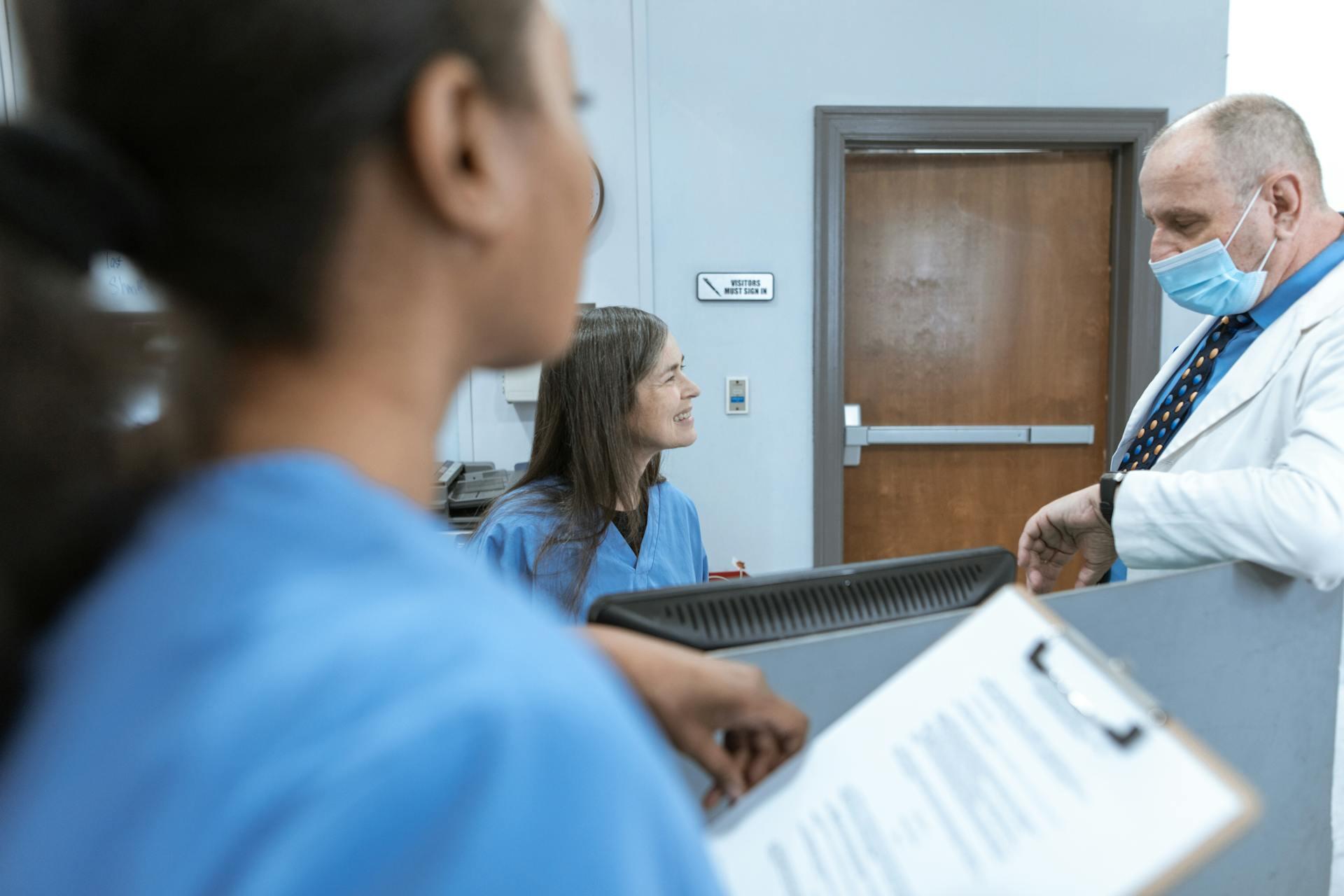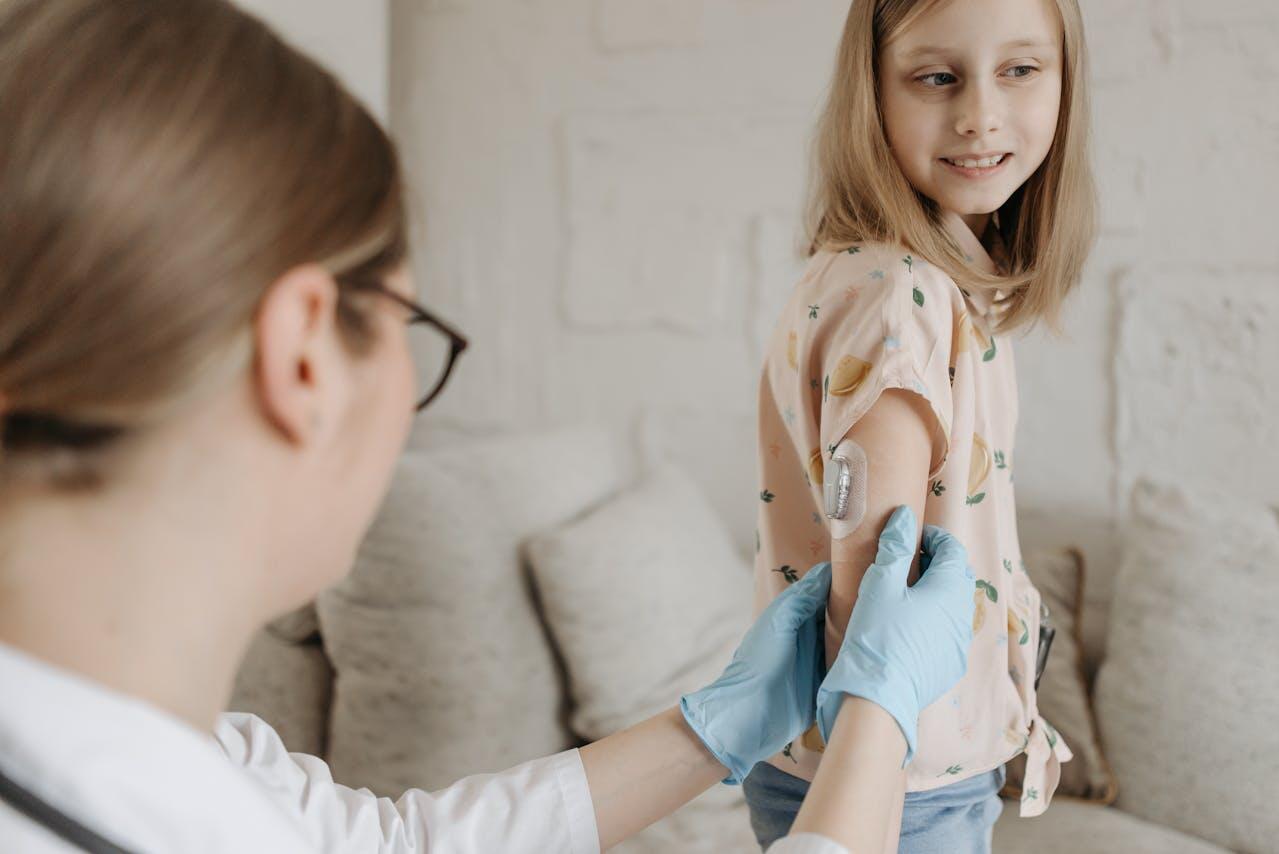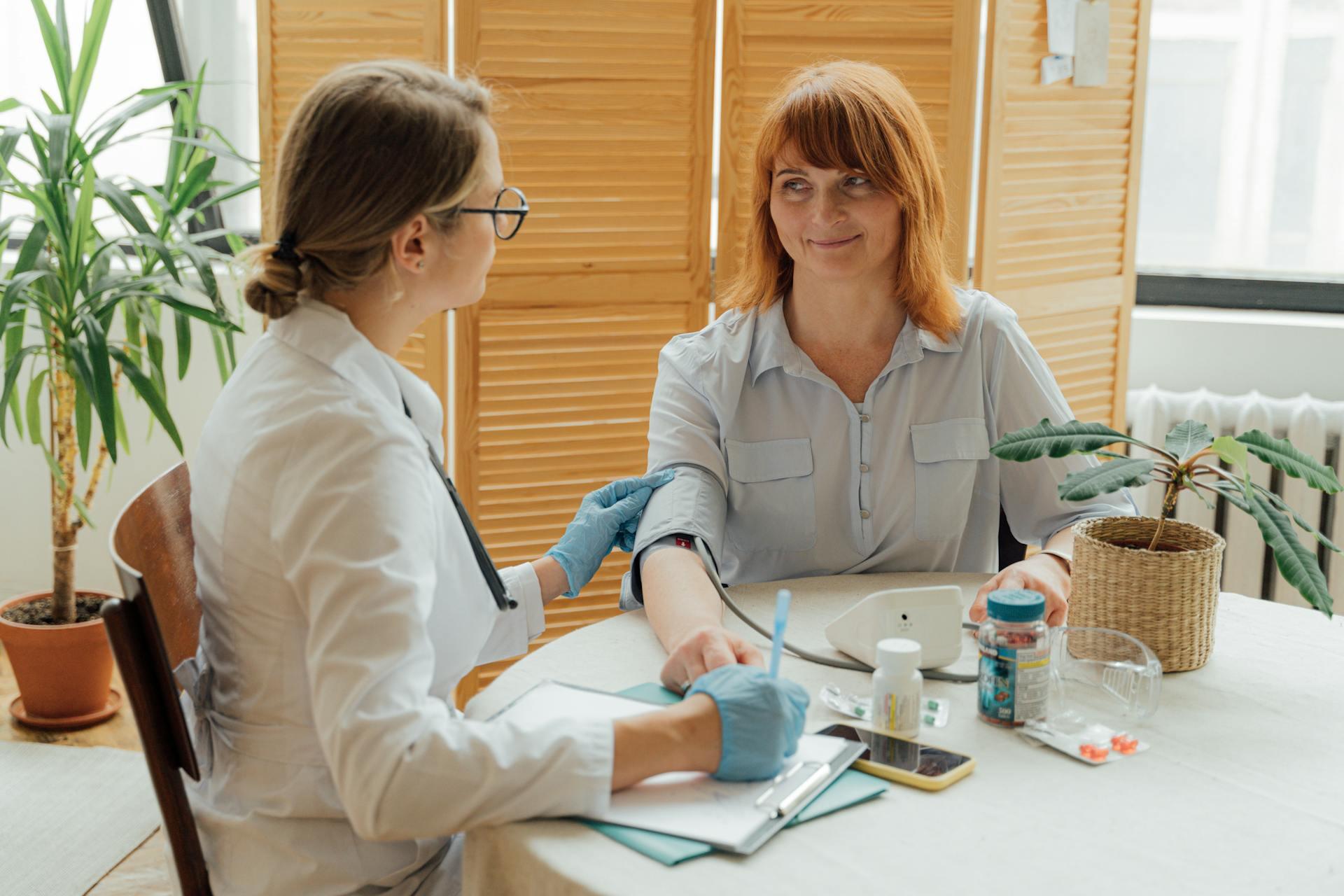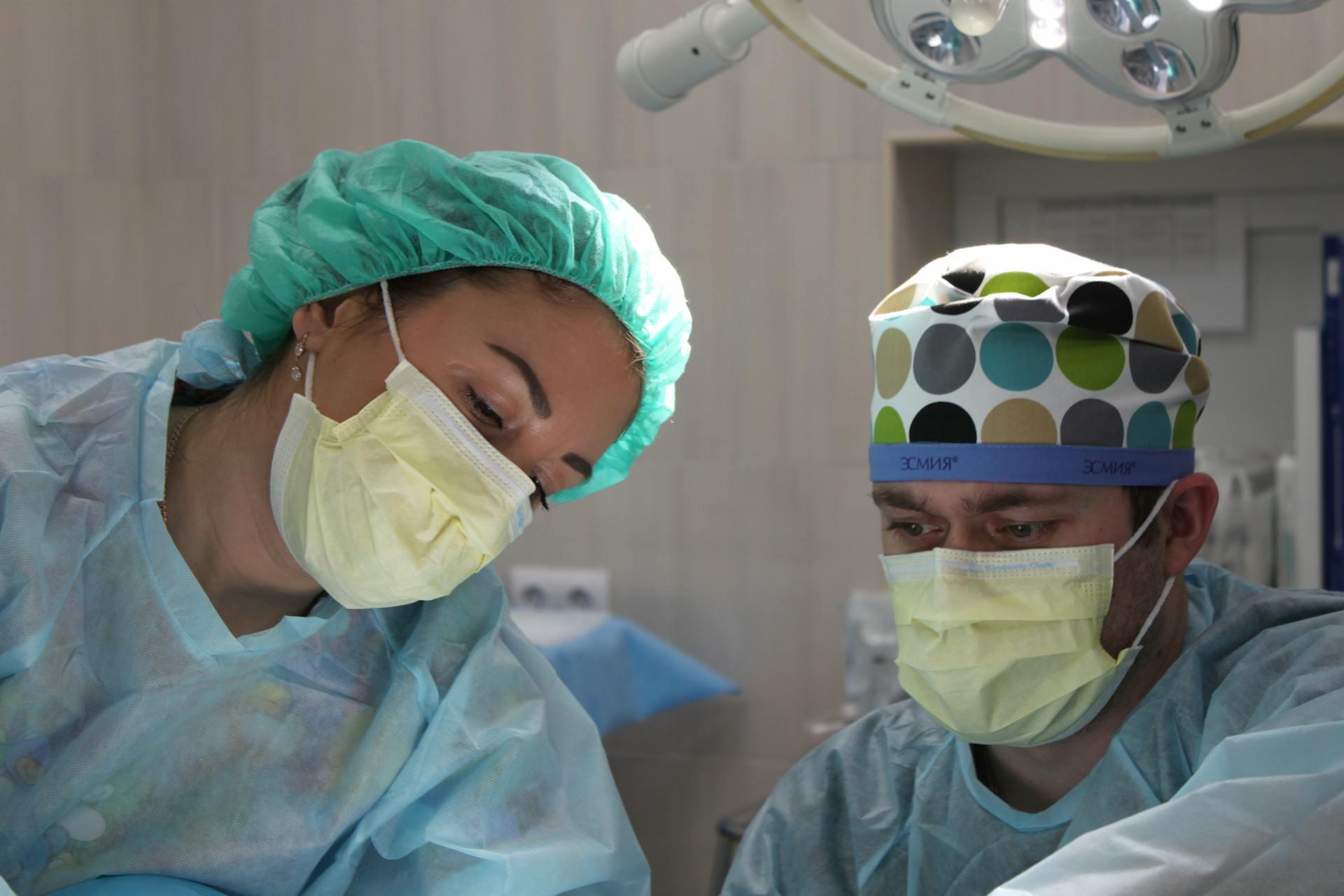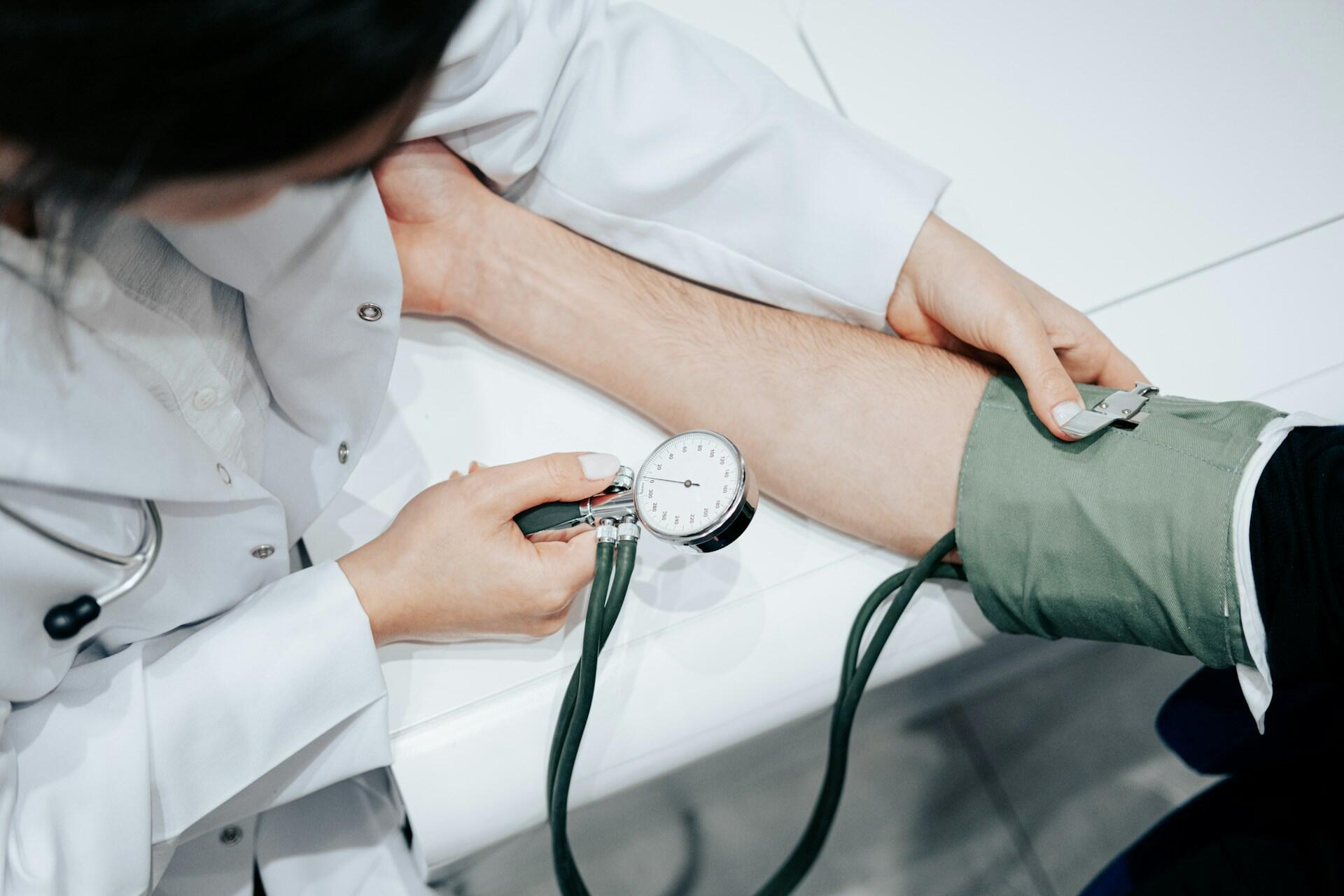Medical nursing in the UK is at the very heart of patient care. Essentially, it's the branch of nursing that specifically deals with people living with everyday illnesses as well as serious long-term conditions. Unlike surgical nursing, which, as the name suggests, revolves around operations, medical nursing focuses more on the ongoing journey of the patient - think things like managing their treatment, monitoring their ongoing progress, and supporting them during ups and downs in their health. It’s also one of the many types of nursing recognised across the NHS, alongside areas such as paediatrics, learning disability, and mental health.
As a medical nurse, your daily tasks could include anything from checking vital signs to helping someone come to terms with living with a chronic condition. If you're keen to become a medical nurse yourself, make sure you keep reading to find out more about the many varied paths within the profession, including A&E, General Practice, Respiratory, Orthopaedic, and Theatre.
| Specialism | Where They Work | What They Do |
|---|---|---|
| Oncology Nurse | Cancer wards, chemotherapy units, hospices | Guide patients through cancer treatment, administer chemotherapy, manage side effects, and provide emotional and support for both patients and families |
| A&E Nurse | Accident & Emergency departments | Deliver urgent care in high pressure situations, stabilize trauma cases, and support doctors during life saving procedures |
| Respiratory Nurse | Hospital wards, specialist clinics, community settings | Manage various chronic breathing conditions like asthma and COPD, help patients understand how to use inhalers, and monitor people with lung infections |
| Orthopaedic Nurse | Trauma units, orthopaedic wards, rehab centres | Caring for patients suffering from broken bones, joint replacements, or spinal injuries. Tasked with helping with rehabilitation and improving mobility as well as preventing complications after surgery |
| Theatre Nurse | Operating theatres, surgical recovery units | Prepare patients for surgery, maintain sterile environments, assist surgeons during operations, and support recovery immediately afterwards |
| General Practice Nurse | GP surgeries, community health centres | Provide routine care such as vaccinations, cervical screenings, blood tests, wound management, and long-term support for conditions like diabetes or hypertension |

What Are the Different Types of Medical Nursing?
They may forget your name, but they will never forget how you made them feel
Maya Angelou
Medical nursing covers a pretty big range of specialisms, each having its own focus, pace, and challenges. While all nurses tend to share the same foundations of clinical skills and patient care, the environment you choose to work in can drastically change your daily responsibilities and the relationships you build with your patients. Below are some of the more common routes within medical nursing in the UK.
Oncology Nurse
Oncology nursing is often described as one of the most emotionally demanding branches of the profession, but on the other hand, it's also one of the most rewarding.

As well as handling chemotherapy and monitoring side effects of cancer care, oncology nurses provide a shoulder to lean on for patients during extremely tough times in their lives.
Patient Type & Workplace
Oncology nurses mainly work with adults; their role may overlap with paediatric nursing. Working in places like inpatient wards, hospices, and chemo units
Tools & Tasks
Administering chemotherapy, side effect monitoring, complex symptom support, and patient education
Challenges of the Role
The emotional toll of long-term care, dealing with the loss of patients, and balancing hope with realism on a daily basis
The average NHS nurse in the UK will walk between 4 and 5 miles during a single 12-hour shift.
A&E Nurse

A&E nurses are at the very frontline of crisis care. Not a job for the faint-hearted, they deal with everything from overdoses, cardiac events, and psychiatric emergencies. To excel in their job, they need to assess patients rapidly and initiate life-saving treatment while coordinating efforts with emergency doctors, paramedics, and surgical teams.
Overall, the pace of this type of nursing is pretty relentless, yet it can also be deeply impactful too, hence why so many nurses go down this route. Since many A&E emergencies involve psychiatric issues, crisis intervention often calls for collaboration with mental health nurses as well.
Shift Types
It can be rapid and unpredictable. At the best of times, A&E is typically very busy, so expect to always be on your feet and ready to deal with the next emergency coming in
Typical Emergencies
Heart attacks, overdoses, broken bones, psychiatric crises, and the like are all common situations A&E nurses are likely to encounter in their first year on the job
Stress Factors
Unfortunately, verbal abuse issues can be common, as well as overcrowding and long waiting times that put pressure on both patients and staff alike
Respiratory Nurse
Simply put, respiratory nurses specialise in lung-related health, where they deal with chronic conditions such as COPD and asthma, plus acute issues such as pneumonia and bronchiectasis. Task-wise, they carry out lung function tests like spirometry and blood gas monitoring.

They're also heavily involved with supporting patients with their inhaler use and managing oxygen therapy as well. Part of their job often involves trying to help patients make important lifestyle changes (like quitting smoking or taking up more exercise) even when they might be reluctant to do so at first. Respiratory issues aren't limited to adults either - babies frequently need help from neonatal nurses.
Who They Work Closely With
GPs, physiotherapists, smoking cessation advisors, and pulmonary rehab teams
Typical Clinic Services
Running breathing clinics, creating self-management plans, arranging home oxygen, supporting families with long-term care
Why Their Role Matters
They help prevent unnecessary hospital admissions and give patients the confidence to live fuller lives
Orthopaedic Nurse
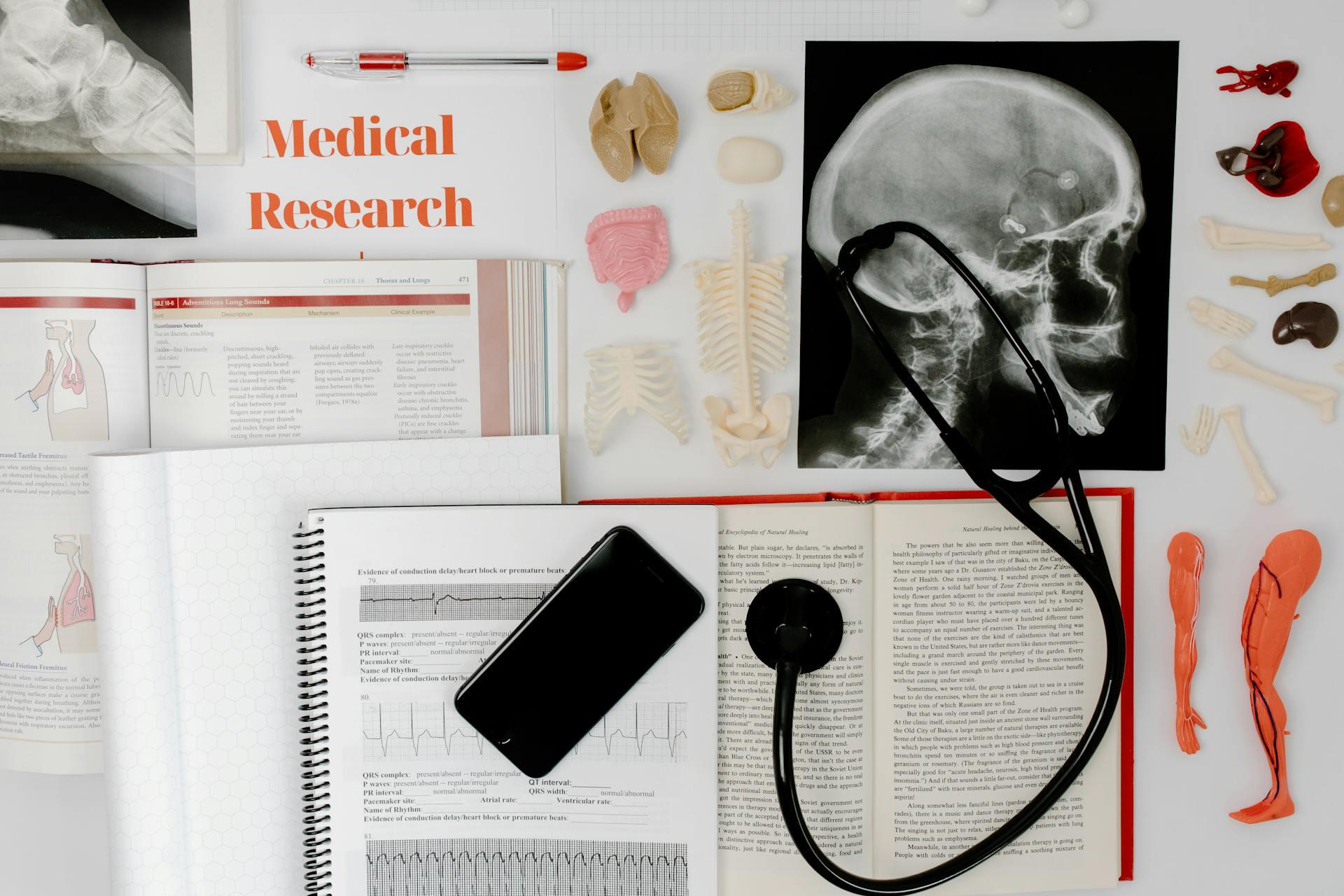
Want to be an orthopaedic nurse? The expect your day-to-day job revolves around helping people of all ages recover from fractures, spinal problems, and joint replacements - basically conditions affecting bones, joints, and muscles
Alongside helping patients with the physical side, they also need to be good motivators in order to encourage frustrated patients dealing with a slow recovery, especially when it comes to helping them regain confidence in walking around or climbing up and down stairs.
Typical Patient Pathway
Emergency admission after trauma. Then surgery. Then recovery on the ward. Finally, community-based rehab.
Who They Work Closely With
Orthopaedic surgeons, physiotherapists, and occupational therapists
Challenges of the Role
Juggling physical care with motivating patients, spotting complications early, and helping to plan safe returns home
Generally, the average NHS medical nurse usually works around 37.5 hours a week. Their shifts can take place over nights, weekends, or even bank holidays
Theatre Nurse
Theatre nurses are vital members of the surgical team. Their role actually begins way before surgery, preparing patients and making sure all equipment is sterile and ready to be used by the surgeons.
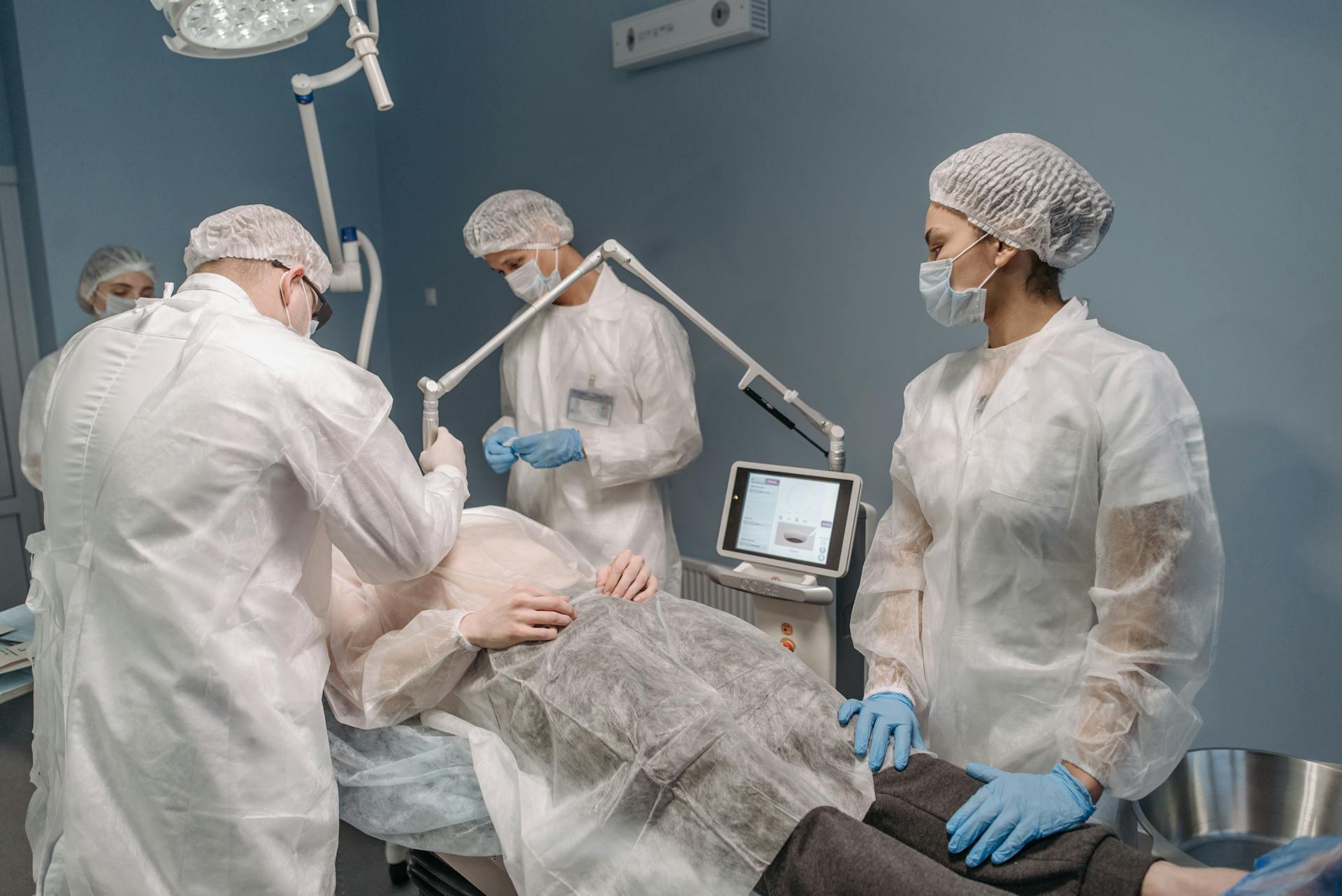
During procedures, they may also act as a scrub nurse. Here, they hand instruments to the surgeon or anticipate what will be needed next to keep the operation flowing without interruption. Once operations are finished, they shift focus again to recovery - keeping an eye on patients coming round from anaesthetic while checking their breathing and other vital signs.
Different Roles They Cover
Scrub nurse, circulating nurse, recovery nurse
Who They Work Closely With
Surgeons, anaesthetists, operating department practitioners (ODPs)
Challenges of the Role
They need to maintain absolute focus, especially when working in such a high-stakes environment
General Practice Nurse
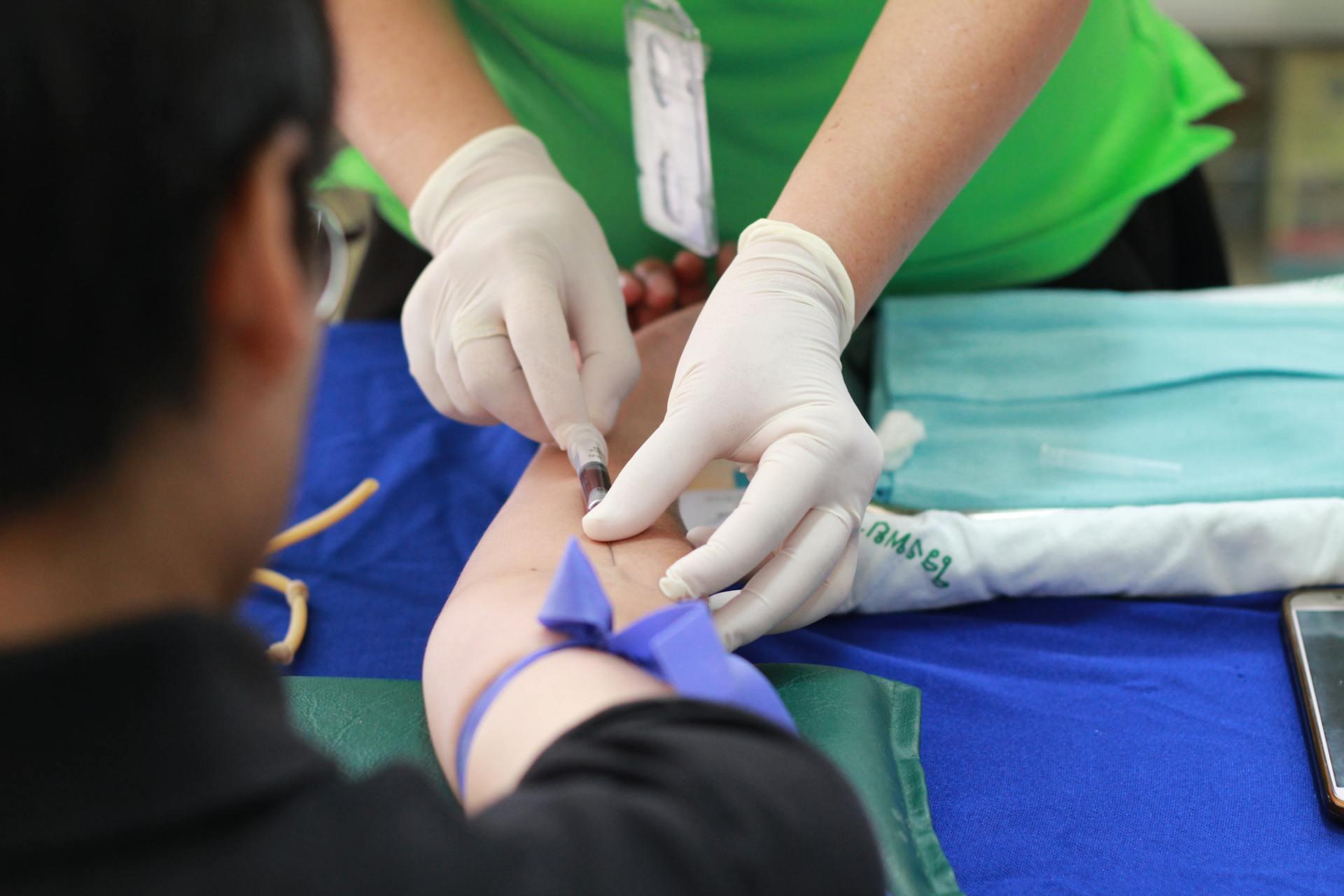
General practice nurses are usually the first people you'll meet when walking into a local GP surgery or health centre in the UK. They look after patients of all ages, covering everything from childhood vaccinations to cervical screenings and management of things like diabetes or high blood pressure.
Without general practice nurses, many of the services people rely on day to day simply wouldn't be able to run - especially with most NHS doctors now struggling to manage an ever-growing amount of work. Many general practice nurses eventually progress into advanced practice nursing, taking on more autonomy through prescribing, diagnosing, and running clinics in their own right.
How Their Day Might Start
Reviewing clinic lists, checking equipment, and preparing for back-to-back appointments are all tasks they might have to complete
Unexpected Parts of the Job
Teaching patients how to self-manage devices (like inhalers or glucose monitors), liaising with schools, or even chasing test results
Why Patients Value Them
Patients often see the same nurse over many years, which makes their advice easier to take on board compared to someone they don't know or trust
What Skills Do You Need to Be Successful in Medical Nursing?
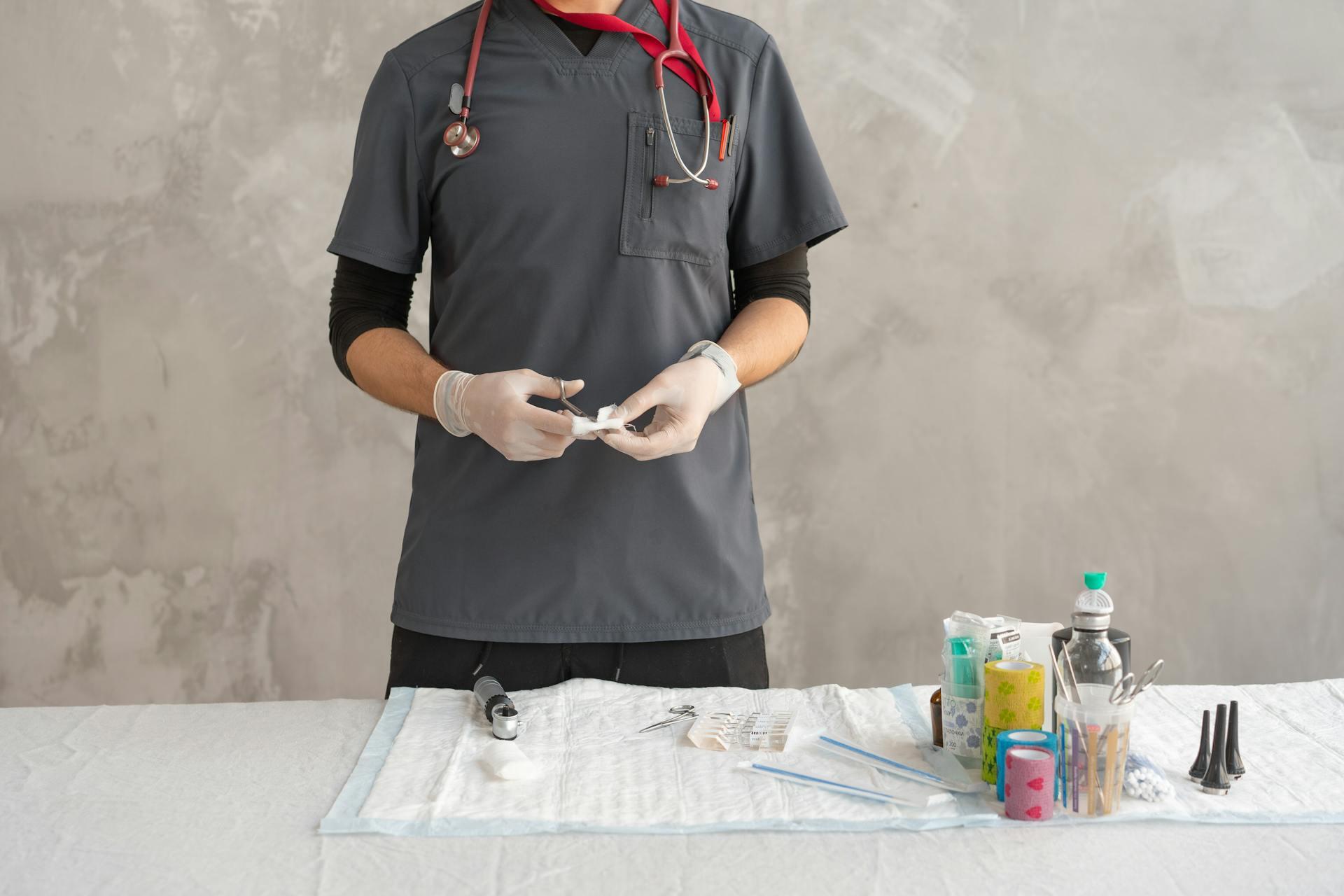
No matter the path you follow in the field of medical nursing, there are certain skills and qualities that every nurse needs. While clinical knowledge is certainly important, in order to be truly successful in your profession, you'll need a lot more than just technical expertise, including great communication skills and the ability to adapt no matter the situation you find yourself in. Take a look below to learn more.
How Much Do Medical Nurses Earn in the UK?
As you've probably realised, medical nursing is one of the most demanding fields out there. But does the level of pay reflect the amount of responsibility? Many nurses would argue they deserve higher pay with long shifts and emotional strain all part of the daily routine. At the same time, starting a career in medical nursing can be a steady and secure path compared to many other professions, and wages can definitely rise with experience and further training.
| Specialism | Salary Range | What Influences Pay |
|---|---|---|
| Oncology Nurse | £25,000 – £40,000+ | Band 5 entry, rises with experience. Advanced nurse practitioners in oncology can earn £60k+ |
| A&E Nurse | £34,000 – £47,000+ | Higher rates due to unsocial hours, weekend/night shifts, and agency work |
| Respiratory Nurse | £36,000 – £55,000+ | Band 6–7 posts, senior respiratory nurse specialists in teaching hospitals often top £60k |
| Orthopaedic Nurse | £30,000 – £44,500 | Mostly Band 5–6, pay rises with surgical ward experience and private hospital roles |
| Theatre Nurse | £31,000 – £46,500 | Band 5–6 roles, senior operating department practitioners (ODPs) in London can exceed £60k |
| General Practice Nurse | £35,000 – £55,000+ | Salaries vary widely, private practice and senior GPNs often earn at the higher end |
Summarise with AI:

